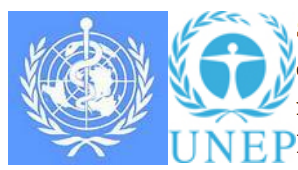 8 October 2016: Ministers and high-level officials from 14 Asia Pacific countries pledged to tackle hazardous chemicals, marine pollution, climate change, air pollution, water and sanitation, and destruction of coral reefs at a meeting of the Ministerial Regional Forum on Environment and Health in Southeast and East Asian Countries. The Forum resulted in the Manila Declaration on Health and Environment, which calls for action on specific Sustainable Development Goals (SDGs) and identifies areas of collaboration within and between countries.
8 October 2016: Ministers and high-level officials from 14 Asia Pacific countries pledged to tackle hazardous chemicals, marine pollution, climate change, air pollution, water and sanitation, and destruction of coral reefs at a meeting of the Ministerial Regional Forum on Environment and Health in Southeast and East Asian Countries. The Forum resulted in the Manila Declaration on Health and Environment, which calls for action on specific Sustainable Development Goals (SDGs) and identifies areas of collaboration within and between countries.
The Forum convened in Manila, Philippines, from 6-8 October 2016, hosted by the Government of the Philippines. The meeting was the fourth gathering of the Forum, which takes place every three years, and aims to strengthen the cooperation of environment and health authorities within and among countries. The Forum’s secretariat is hosted by UN Environment’s Regional Office for Asia-Pacific (ROAP) and the World Health Organization’s (WHO) South-East Asia and Western Pacific regional offices.
The Forum was established in 2007 by 14 countries: Brunei, Cambodia, China, Indonesia, Japan, the Lao People’s Democratic Republic, Malaysia, Mongolia, Myanmar, Philippines, the Republic of Korea, Singapore, Thailand and Viet Nam. For the 2016 meeting, governments decided to invite all countries of the WHO regions of South-East Asia and the Western Pacific. This year’s forum, therefore, was known as the Asia-Pacific Regional Forum on Health and Environment.
In the Manila Declaration, Ministers call on governments, the international development community, civil society organizations, the private sector, and other stakeholders to “change the way we address environmental and health issues.” Ministers commit to activities in support of several SDGs: ensure availability and sustainable management of water and sanitation for all, integrated water resources management and other aims under SDG 6; take urgent action to combat climate change and its impacts in line with SDG 13, including by realizing health benefits of mitigation actions by ensuring clean air for health and well-being and preventing transboundary haze through the promotion of sustainable forest management (SFM) and prevention of land degradation and biodiversity loss in line with SDG 15; reduce deaths and illnesses from hazardous chemicals and air, water and soil pollution through environmentally sound chemicals management in line with SDG 3 and SDG 12; reduce the environmental impact of cities, as part of efforts towards SDG 11; and protect the health of the working population (SDG 8). The Declaration also addresses: antimicrobial resistance (AMR); transboundary air pollution and short-lived climate pollutants (SLCPs), shipping and dumping of waste; and marine pollution and marine biodiversity.
“More hospitals, more doctors and more nurses are not always the answer” to health problems, said Paulyn Jean Rossel-Ubial, Philippines Department of Health Secretary. She said the Declaration, therefore, advocates instead for clean air, clean sources of energy, safe water and food and environmental protection. She called for the health sector “to reinvent itself as a champion of the SDGs.”
Ibrahim Thiaw, UN Environment, said the cooperation among environment and health experts at the Forum demonstrates how to “break down barriers and nurture integration in many other areas, like finance, transport, energy and security.” Shin Young-soo, WHO, described the Forum as a concrete example of how to tackle emerging challenges through cooperation.
The meeting also discussed and adopted the Regional Forum’s Implementation Plan 2017-2019. [Manila Declaration] [WHO Press Release] [WHO Regional Director Statement] [Meeting Agenda] [Implementation Plan 2017-2019] [Meeting Documents] [Regional Forum Website]